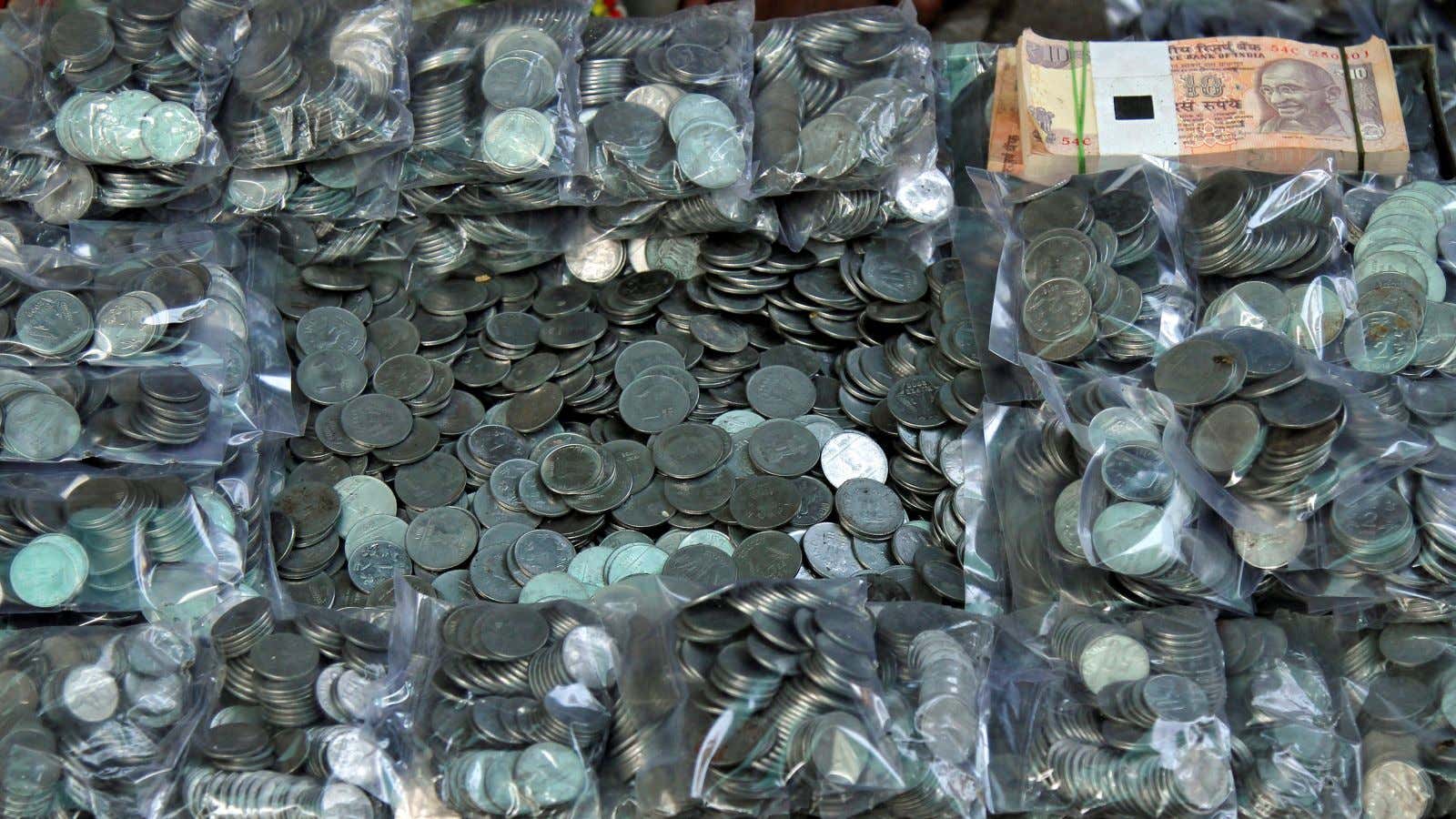India’s state-run lenders and its banking regulators, along with the government and taxpayers, must be glad that February has ended.
The month saw a string of frauds and scams being exposed across the country, translating to a loss of nearly $2.5 billion to the system. This included those perpetrated by jewellers Nirav Modi and Mehul Choksi, Rotomac’s Vikram Kothari, and Simbhaoli Sugars. What may have added to the sector’s woes is the government’s reaction, which may have sprung from the desperation to be seen acting decisively.
But first, here’s a brief look at each of the scams that rocked the sector this February.
The outbreak
Nirav Modi and Mehul Choksi: Diamantaires Nirav Modi and Mehul Choksi allegedly managed to perpetrate the biggest scam in Indian banking history. Punjab National Bank (PNB) on Feb.14 declared that the duo had massively swindled it—a probe revealed the amount involved could be nearly $2 billion.
In collusion with some PNB employees, companies owned by Modi and Choksi managed to fraudulently get letters of undertaking (LoUs) issued from PNB. These LoUs were then encashed at overseas branches of other banks. Incredibly enough, these lapses went unnoticed for over seven years.
The Central Bureau of investigation (CBI), India’s apex probe agency, has taken several PNB employees in custody, besides pursuing the firms. Modi and Choksi have fled the country and remain untraceable. Meanwhile, Modi’s firm, Firestar Diamond, has filed for bankruptcy in the US.
Modi himself is reported to have written to PNB alleging that the bank’s overzealous attempts had spoilt its chances of recovering the money his firm owed.
Vikram Kothari: Rotomac Global is a household name in India when it comes to ball-point pens and other stationery. On Feb. 22, its owner Kothari was arrested by the CBI for conspiring with bank officials and siphoning nearly Rs3,700 crore from seven different banks. His firm has been accused of misusing credit sanctions given by the Bank of Baroda and violating India’s forex laws. Kothari remains under custody.
Simbhaoli Sugars: Even as the country was recovering from the shock of these two exposes, lenders dragged one of India’s largest sugar refineries to law enforcement agencies on Feb. 22 for siphoning at least Rs109.08 crore ($16.87 million).
Even though the quantum of loss was relatively low, this case exposed a graver systemic risk. Simbhaoli Sugars had managed to secure a loan from a consortium of banks led by the State Bank of India months after it was unable to service earlier loans taken from the Oriental Bank of Commerce.
Red flags were either ignored by the bankers or the system alerts themselves failed, further eroding the faith in the country’s financial system.
Knee-jerk mode
The Narendra Modi administration’s frenzied damage-control measures may only have left the many players hamstrung, investigators choked, and the economy in doldrums.
In a tweet on Feb. 27, Rajiv Kumar, the man in charge of the department of financial services, ordered that lenders must examine and report all bad loans over Rs50 crore. Already grappling a staggering bad-loan pile of over Rs9.5 lakh crore, banks aren’t going find this an easy task. Kumar has also given banks a deadline of 15 days to identify and plug systemic loopholes, which many believe is unrealistic.
“A lot of problems are structural in nature and, therefore, 15 days may not be enough to fix it and there may be some operational issues/delays due to it,” said Udit Kariwala, associate director at India Ratings & Research, a credit ratings firm.
In any case, experts believe that, even if well-intended, such hasty timelines and rules don’t help much.
“We already have Reserve Bank of India rules in place to probe an account if the bank suspects fraud. But now if all NPAs over Rs50 crore have to be checked, when will banks have the time to do anything else?” asked a retired public sector banker who didn’t want to be identified. “Indian banks don’t need more rules…banks and others (government and regulators) need to ensure that rules are followed.”
Others believe that banks already follow many of these practices. The finance ministry’s statements are, thus, meant as reminders. “It is possible that some banks are not following it or have missed it in some cases. So this will serve as a reminder,” said VG Kannan, CEO of the Indian Banks’ Association.
Please end the nightmare
Meanwhile, bad loans and frauds are not their only problem. Other challenges include dismal loan growth, weak deposit accumulation, and loss of market share to the comparatively better-managed private lenders.
Unsurprisingly, bank stocks have been on a losing spree this month. As the probes in these cases widen, it may be a while before the turmoil settles down.
Indian banking may have never looked forward to the month of March this desperately.
